- Home
- Robin Cook
Mindbend Page 2
Mindbend Read online
Page 2
For a few moments he stood paralyzed until a sharp pain in his temples made him stagger backward. He bumped the countertop and steadied himself. Glancing at the large institutional clock on the wall, he was surprised to notice that the minute hand seemed to have jumped five minutes.
Swiftly and silently Dr. Foley performed several tasks. Then he stepped over to a large wooden crate in the center of the room and opened it. Within was a second, insulated container. Releasing the latch, Dr. Foley raised its lid and looked in. Resting on a bed of dry ice were a number of other specimens. Dr. Foley carefully placed the newest addition on the ice and closed the lid.
Twenty minutes later, an orderly dressed in a white shirt and blue pants pushed a dolly into the small unmarked laboratory and picked up the ice chest and packed it in a wooden crate. Using the freight elevator, he took it down to the loading dock and put it into a van.
Forty minutes after that, the wooden crate was taken off the van and placed in the luggage section of a Gulf Stream jet at Teterboro Airport in New Jersey.
CHAPTER
1
Adam Schonberg’s eyes blinked open and in the darkness of his bedroom he heard the undulating scream of a siren announcing yet another catastrophe. Gradually, the noise diminished as the police car or ambulance or fire truck or whatever it was receded into the distance. It was morning in New York City.
Snaking a hand out from beneath the warm blankets, Adam groped for his glasses and then turned the face of the clock radio toward him: 4:47 A.M. Relieved, he flipped off the alarm, which was scheduled to go off at 5:00, then pulled his hand back under the covers. He had fifteen more minutes before he had to haul himself out of bed and into the icy bathroom. Normally, he’d never take the chance of turning off the alarm for fear he’d oversleep. But as charged up as he was this morning that was not a possibility.
Rolling onto his left side, he pressed against the sleeping form of Jennifer, his twenty-three-year-old wife of one and a half years, feeling the rhythmical rise and fall of her chest as she breathed. Reaching down, Adam ran his hand lightly up her thigh, which was slim and firm from her daily dance workouts. Her skin was soft and remarkably smooth with hardly a freckle to mar its surface. It had a delicate olive tone that suggested southern European descent, but that was not the case. Jennifer insisted that her genealogy was English and Irish on her father’s side of the family, German and Polish on her mother’s side.
Jennifer straightened out her legs, sighed, and rolled over onto her back, forcing Adam to move out of her way. He smiled; even in her sleep she had a forceful personality. Although her strong character could at times present itself to Adam as frustrating stubbornness, it was also one of the reasons Adam loved her so much.
Glancing at the clock, which now said 4:58, Adam forced himself out of bed. As he crossed the room to shower he stubbed his toe on an old Pullman trunk Jennifer had covered with a throw to serve as a table. Gritting his teeth to keep from crying out, he hobbled to the edge of the tub where he sat down to survey the damage. He had a remarkably low tolerance for pain.
The first time Adam had realized this was during his disastrously short high school football career. Because he was one of the larger boys, everyone including Adam himself had expected him to be on the team, especially since David, Adam’s deceased older brother, had been one of the town stars. But such was not to be the case. Everything had gone well until Adam had been given the ball and told to run a play he had dutifully memorized. The instant he was tackled he had felt pain, and by the time everybody had gotten back on his feet, Adam had decided this was just another area where he could not compete with his brother’s reputation.
Shaking off the memory, Adam quickly showered, shaved his heavy beard which would shadow his chin by five that afternoon, and brushed his thick black hair. He whipped on his clothes, barely glancing in the mirror, oblivious to his dark good looks.
Less than ten minutes after getting out of bed he was in the two-by-four kitchen, heating up his coffee. He glanced about the cramped, badly furnished apartment, vowing again that the minute he finished medical school he would find Jennifer a decent place to live. Then he went over to the desk in the living room and glanced at the material he’d been working on the night before.
A wave of anxiety passed through his body. In less than four hours he was going to be standing in front of the imposing Dr. Thayer Norton, chief of Internal Medicine. Grouped around would be the rest of the third-year medical students who were currently rotating on Internal Medicine with Adam. A few of the students, like Charles Hanson, might be rooting for him. But the rest would be more or less hoping that he’d make a fool of himself, which was a distinct possibility. Adam had never functioned well in front of a group, another disappointment for his father, who was a recognized and much-sought-after speaker. At the beginning of the rotation Adam had drawn a blank in the middle of presenting a case, and Dr. Norton had never let him forget it. Consequently, Adam had postponed his major case presentation until the end of this rotation, hoping that he’d grow more confident with time. He did, but not a lot. It was going to be tough and that was why he’d gotten up before the sun. He wanted to go over the material yet again.
Clearing his throat and trying to shut out the bustling noise of a New York morning, Adam began his presentation once again. He spoke out loud, pretending he was standing in front of Dr. Norton.
• • •
Jennifer would have slept until ten if it hadn’t been for two things: one, she had a doctor’s appointment at nine, and two, by seven-fifteen the temperature in the bedroom had climbed to a tropical level. Perspiring she kicked off the covers and lay still for a moment until the shock of yesterday’s discovery had again settled in. Yesterday—after a month of trying to deny the possibility—Jennifer had finally gone out and bought a home pregnancy test. Not only had she missed two periods, she had developed morning sickness. It was the nausea more than anything else that had driven her to buy the test. She did not want to upset Adam, who had been irritable and tense for the last few months, until she was absolutely sure. The home pregnancy test had been positive, and today she was seeing her gynecologist.
Carefully she got out of bed, wondering if anyone realized that dancers, despite their limber grace on stage, were always stiff and sore in the morning. Stretching out her leg muscles, she felt the panic wash over her, obliterating the nausea.
“Oh, God,” she moaned to herself. If she really was pregnant, how would they manage? The money she earned from the Jason Conrad Dancers was their only income, except for the money her mother sneaked to her behind her dad’s and Adam’s backs. How would they ever support a baby? Well, maybe the test was wrong. She was using an IUD, which was supposed to be the most effective contraceptive device next to the pill. At least Dr. Vandermer would end the suspense. Jennifer knew that it was only because Adam was a medical student that the doctor had agreed to fit her into his crowded schedule.
She turned to glance at the Sony clock radio her mother had given her. She hadn’t told Adam about the gift because Adam had become touchy over her parents’ generosity, or, as he termed it, their interference. Jennifer suspected this had become a sore spot with Adam only because of his own father’s stinginess. It was no secret to Jennifer that Dr. David Schonberg had been so set against Adam’s marrying her that when Adam had willfully gone ahead and done it, he’d been essentially disinherited. In one way Jennifer thought that she’d get a bit of pleasure knowing how mad the old doctor would be if she really was pregnant. Reluctantly, pulling her stiff joints into a steady position, she brushed out her lustrous long brown hair and carefully checked her face in the mirror to make sure its attractive oval planes and clear blue eyes did not reveal her anxiety. No need to upset Adam before she had to.
Forcing a cheerful smile, she sallied into the living room where Adam was going over his speech for the tenth time.
“Isn’t talking to oneself the first sign of dementia?” teased Jennifer.<
br />
“Clever!” acknowledged Adam. “Especially since I didn’t think Sleeping Beauty could cogitate before noon.”
“How are you doing with the presentation?” she asked, putting her arms around him and turning her face up for a kiss.
“I got it down to the required fifteen minutes. That’s about all I can say.” He bent and kissed her.
“Oh, Adam. You’ll do just fine. I tell you what: Why don’t you give the presentation to me?” She poured some coffee and then took a seat in the living room. “What disease does the patient have?”
“Tardive dyskinesia is the current diagnosis.”
“What on earth is that?” asked Jennifer.
“It’s a neurological disorder involving all sorts of involuntary movements. It’s associated with certain drugs given for psychiatric problems . . .”
Jennifer nodded, trying to appear interested, but Adam was only a minute into his speech when her attention turned back to her possible pregnancy.
CHAPTER
2
Dr. Clark Vandermer’s office was just off Park Avenue on Thirty-sixth Street. Jennifer got there by taking the Lexington Avenue subway to Thirty-third Street and walking north. The building was a large apartment house complete with awning and liveried doorman. Entrance to the professional suites was to the right of the building’s main entrance. As Jennifer opened the front door, the slight smell of medicinal alcohol made her flinch. She had never enjoyed going to the gynecologist, and the idea that she might be pregnant made this particular visit especially upsetting.
Jennifer walked down a carpeted hallway, reading the names painted with gold leaf on the doors. She passed the entrances to the offices of two dentists and a pediatrician, and came to a door on which was written “GYN Associates.” Below this was a list of names. The second name was Dr. Clark Vandermer’s.
Jennifer took off the coat that she’d purchased secondhand in Soho for thirty-five dollars and draped it over her arm. Under the coat she was dressed quite well in a smart Calvin Klein shirt-dress that her mother had recently bought for her at Bloomingdale’s.
As she opened the door, Jennifer remembered the office from her previous visits. On the wall opposite the entrance was a sliding glass panel beyond which sat the receptionist.
There were a number of women in the waiting room. Jennifer didn’t count but there had to be more than twelve. All were well dressed and most were either reading or doing needlepoint.
After checking in with the receptionist, who admitted that she had no idea how long the wait would be, Jennifer found a seat near the window. She picked up a recent copy of The New Yorker from the coffee table and tried to read, but all she could do was worry about Adam’s reaction if she were really pregnant.
It was two hours and fifteen minutes before Jennifer was finally called. She followed the nurse to an examining room.
“Take off all your clothes and put this on,” the woman said, handing Jennifer a paper cover-up. “I’ll be back and then the doctor will be in.”
Before Jennifer could ask any questions, the nurse was gone and the door closed.
The room was about ten feet square with a curtained window at one end, a second door to the right, and bare walls. The furniture included a scale, a wastepaper basket which was full to overflowing, an examination table with stirrups, an open locker, and a sink. It was hardly cozy, and Jennifer remembered that Dr. Vandermer was brusque to the point of rudeness. Adam had sent her to him because he was supposed to be the best, but “best” did not seem to include an evaluation of bedside manner.
Not knowing how soon the nurse would be back, Jennifer hurried. She deposited her large coat and bag on the floor and used the locker for her clothes. Once naked, she tried to figure out the cover-up. She couldn’t tell if it should go on with the opening in the front or the back. She opted for the front. Then she tried to decide what she should do with herself. Should she lie down on the examination table or just stand? Her feet were getting cold from the tile floor. She lifted herself onto the examination table and sat on the edge.
A moment later the nurse returned in a rush.
“I’m so sorry for the long wait,” she said in a pleasant but harried tone. “We seem to be getting busier and busier. Must be a new baby boom.” She quickly began checking Jennifer’s weight and blood pressure and then sent her to the bathroom for a urine specimen. When Jennifer returned, Dr. Vandermer was waiting.
Jennifer had always been leery of handsome gynecologists, and Dr. Vandermer evoked that old reservation. He looked more like an actor playing a role than a real doctor. He was tall with dark hair silvering on his temples. His face was square with a sharp chin line and a straight mouth. He wore a pair of reading glasses on the end of his nose and looked over them at Jennifer.
“Good morning,” he said in a voice that did not invite conversation. His blue eyes swept over her, then her chart. The nurse shut the door behind them and then busied herself with the contents of a stainless-steel pan by the sink.
“Ah, yes. You’re Mrs. Schonberg, the wife of Adam Schonberg the third-year medical student,” Dr. Vandermer said.
Jennifer didn’t know if it were a statement or a question, but she nodded and said that she was Adam’s wife.
“I wouldn’t think this was a good time for you to be having a baby, Mrs. Schonberg,” said Dr. Vandermer.
Jennifer was shocked. If she hadn’t been naked and vulnerable, she would have been angry. Instead she felt defensive.
“I hope I’m not pregnant,” said Jennifer. “That’s why you put in an IUD a year ago.”
“What happened to the IUD?” asked Dr. Vandermer.
“I think it’s still there,” said Jennifer.
“What do you mean you think it is still there?” questioned Dr. Vandermer. “You don’t know?”
“I checked just this morning. The strings are there.”
Shaking his head, Dr. Vandermer indicated to Jennifer that he thought her less than responsible. He leaned over and quickly wrote something on the chart. Then he raised his eyes, took off his reading glasses. “On the history you filled out a year ago you indicated that you had a brother who’d only lived for several weeks.”
“That’s right,” said Jennifer. “He was a mongoloid baby.”
“How old was your mother at the time?” asked Dr. Vandermer.
“I think she was around thirty-six,” said Jennifer.
“That’s something you should know about,” said Dr. Vandermer with thinly veiled exasperation. “Find out for sure. I want that information on the chart.”
Putting down his pen, Vandermer took out his stethoscope and gave Jennifer a rapid but thorough physical examination, peering into her eyes and ears and listening to her chest and heart. He tapped her knees and ankles, scratched the bottoms of her feet, and inspected every inch of her body. He worked in total silence. Jennifer felt as if she were a piece of meat in the hands of a very competent butcher. She knew Dr. Vandermer was good, but she could have used some warmth.
When he finished, the doctor sat down and quickly wrote his findings on the chart. Then he asked Jennifer about her menstrual history and the date of her last period. Before she could ask any questions he motioned her into a prone position and began the pelvic.
“Just relax now,” said Dr. Vandermer, finally remembering that his patient was probably anxious. Jennifer felt an object enter her. It was done smoothly and expertly. There was no pain, just an unpleasant fullness. She could hear Dr. Vandermer speak with the nurse. She heard the door open and saw the nurse leave.
Dr. Vandermer stood up so that Jennifer could see him. “The IUD is still in place, but it looks like it is low. I think it should be removed.”
“Is that difficult?” asked Jennifer.
“Very simple,” said Dr. Vandermer. “Nancy went to get me an instrument. It will only take a second.”
Nancy returned with something that Jennifer could not see. She felt a fleeting twinge of pain. Dr.
Vandermer stood up holding a coil of plastic in his gloved hand.
“You definitely are pregnant,” he said, sitting down at the desk and writing anew on the chart.
Jennifer experienced a rush of panic similar to the one she had felt the moment she saw that the home pregnancy test was positive.
“Are you sure?” she managed with a quivering voice.
Dr. Vandermer did not look up. “We’ll confirm it by laboratory tests, but I’m sure.”
Nancy finished writing labels on the specimen tubes and came around to help Jennifer remove her feet from the stirrups. Jennifer swung around so that she was sitting on the side of the examination table.
“Is everything all right?” she asked.
“Everything is perfectly normal,” assured Dr. Vandermer. He completed the chart, then spun around to face her. His expression was as neutral as when he’d first entered.
“Can you give me some idea of what to expect?” asked Jennifer. She folded her hands to steady them and put them on her lap.
“Of course. Nancy Guenther will be your nurse practitioner,” Dr. Vandermer said, nodding at the nurse. “She’ll go over things like that with you. I’ll be seeing you for routine visits monthly for the first six months, then every two weeks until the last month. Then weekly unless there’s a complication.” Dr. Vandermer got up and prepared to leave.
“Will I be seeing you each time I come?” asked Jennifer.
“Generally,” said Dr. Vandermer. “Occasionally I might have a delivery. Then you would be seen by one of my associates or Nancy. In either case they would report directly to me. Any other questions?”
Jennifer had so many questions she didn’t know where to begin. She felt like her life was coming apart at the seams. She also had the feeling that Dr. Vandermer wanted to leave now that the exam was over. “What about when it comes time for my delivery?” she asked. “I don’t mind seeing someone else for a routine visit, but when it comes to delivering, I feel differently. You’re not planning a vacation around my due date, are you?”

 Shock
Shock Mutation
Mutation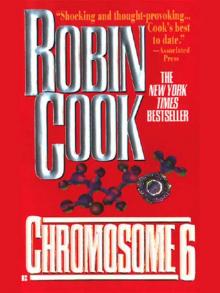 Chromosome 6
Chromosome 6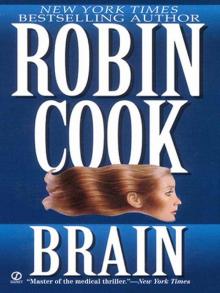 Brain
Brain Intervention
Intervention Invasion
Invasion The Legend of Parzival: The Epic Story of His Quest for the Grail
The Legend of Parzival: The Epic Story of His Quest for the Grail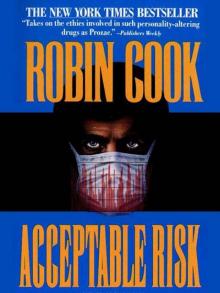 Acceptable Risk
Acceptable Risk Cell
Cell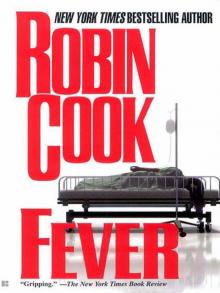 Fever
Fever Death Benefit
Death Benefit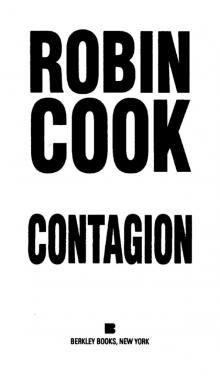 Contagion
Contagion Mindbend
Mindbend Coma
Coma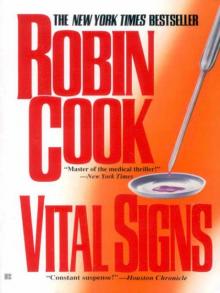 Vital Signs
Vital Signs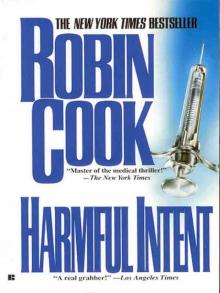 Harmful Intent
Harmful Intent Critical
Critical Foreign Body
Foreign Body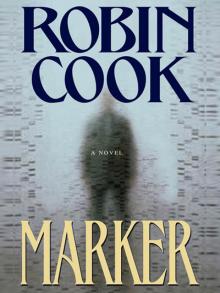 Marker
Marker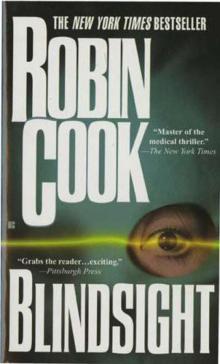 Blindsight
Blindsight Terminal
Terminal Sphinx
Sphinx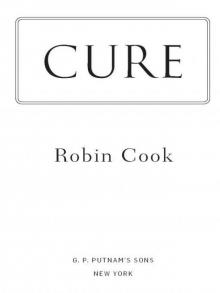 Fatal Cure
Fatal Cure Host
Host Charlatans
Charlatans Crisis
Crisis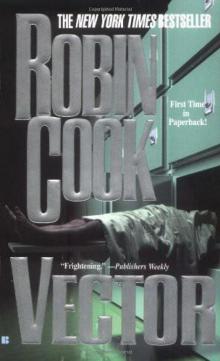 Vector
Vector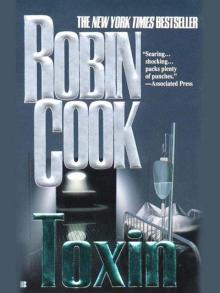 Toxin
Toxin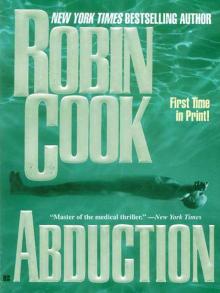 Abduction
Abduction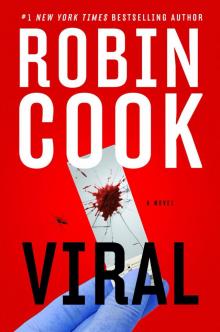 Viral
Viral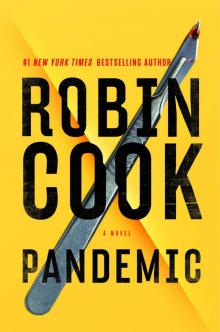 Pandemic
Pandemic Outbreak
Outbreak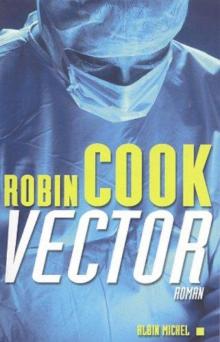 Vector js&lm-4
Vector js&lm-4 Godplayer
Godplayer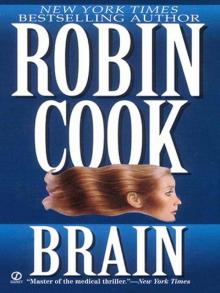 A Brain
A Brain Year of the Intern
Year of the Intern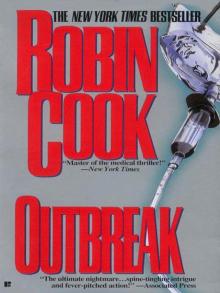 Outbreak dmb-1
Outbreak dmb-1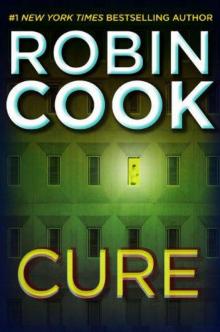 Cure
Cure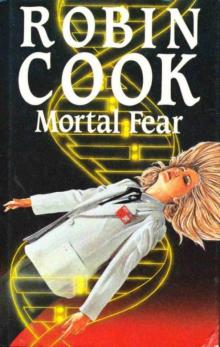 Mortal Fear
Mortal Fear The Legend of Parzival
The Legend of Parzival Vital Signs dmb-2
Vital Signs dmb-2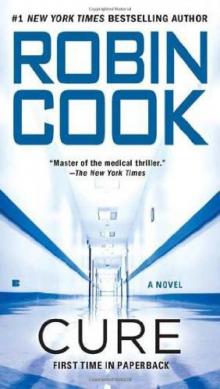 Cure (2010) sam-10
Cure (2010) sam-10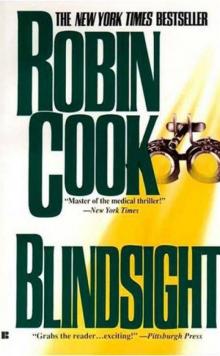 Blindsight sam-1
Blindsight sam-1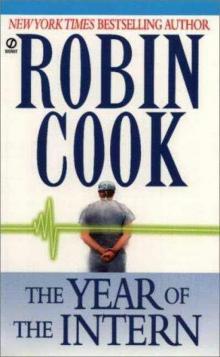 The Year of the Intern
The Year of the Intern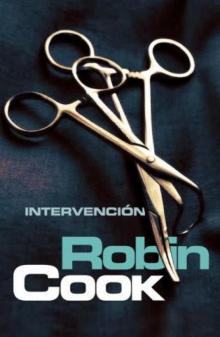 Intervention sam-9
Intervention sam-9 Foreign Body sam-8
Foreign Body sam-8